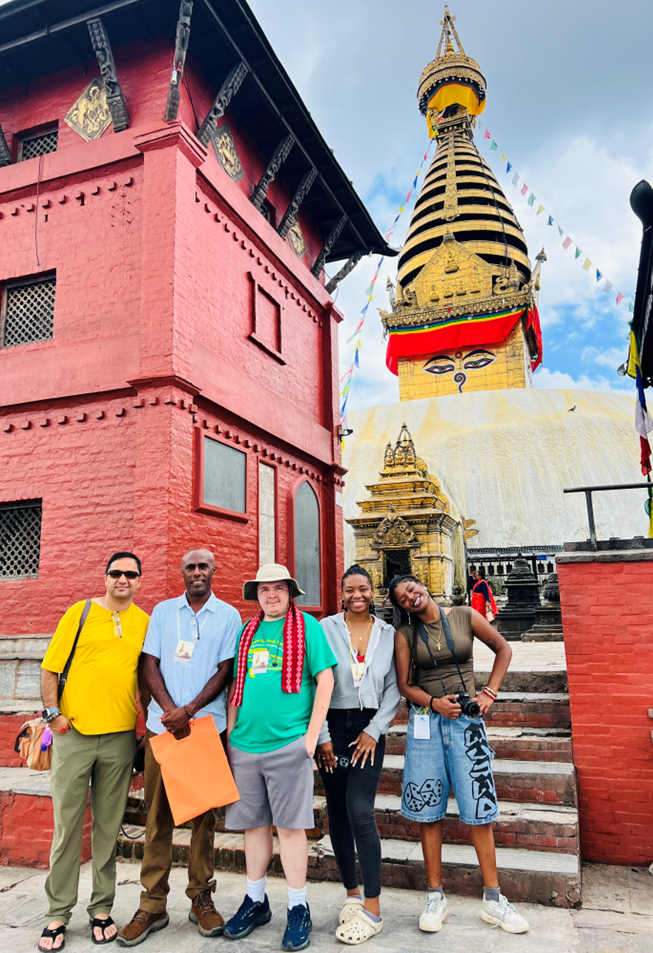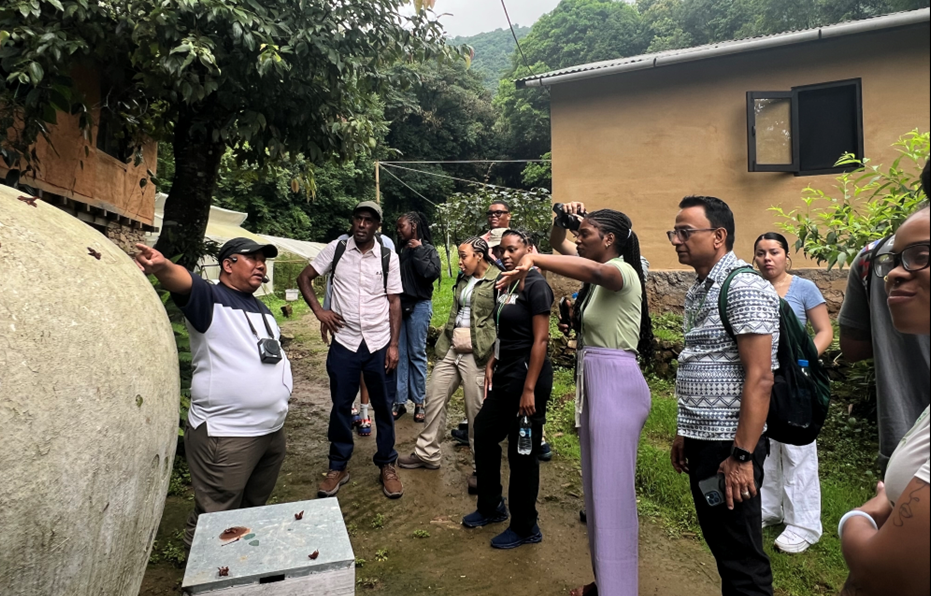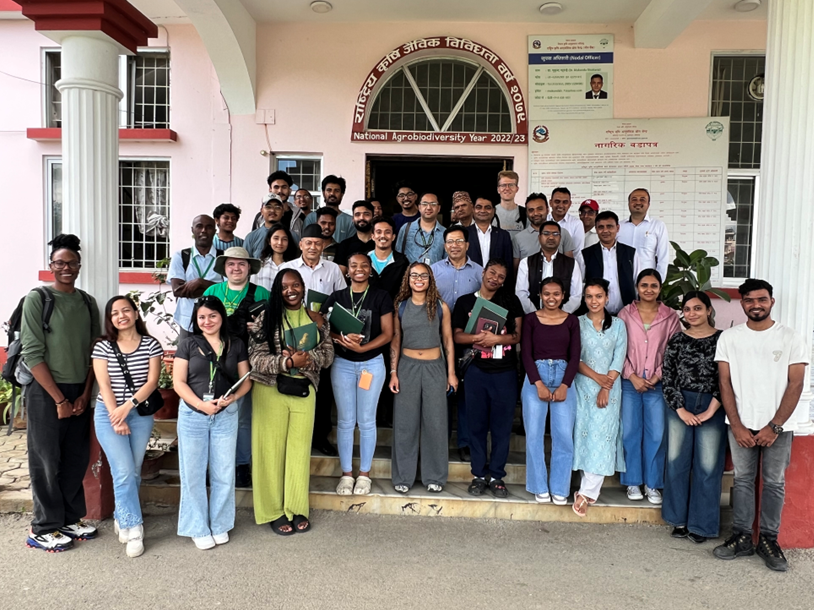Ten undergraduate students from Kentucky State University studied abroad this summer as part of a 15-day experiential learning trip to Nepal, held June 20–July 4, 2025. Led by Dr. Buddhi Gyawali and supported by the USDA’s NextGen initiative, the program immersed students in global conversations on sustainability, food security, and responses to changing environmental conditions.
The Kentucky State delegation included President Dr. Koffi C. Akakpo; Dr. Maheteme Gebremedhin, Chair of the School of Agriculture and Natural Resources; Dr. Suraj Upadhaya, Assistant Professor of Sustainable Systems; and Ms. Shikha Acharya, Undergraduate STEM Research Program Coordinator.
The multidisciplinary reach of the program was underscored by the breadth of majors represented: agriculture, computer science, political science, psychology, social work, chemistry, and business management.
In Nepal, students engaged with leading organizations such as the International Centre for Integrated Mountain Development, the Nepal Agricultural Research Council, the HASERA Permaculture Learning Center, Avni – Center for Sustainability, and Tribhuvan University’s Central Department of Hydrology and Meteorology. These visits offered practical lessons in sustainable farming, community-based conservation, and approaches to managing environmental change.
Students explored heritage sites in Kathmandu, joined conservation projects in Chitwan National Park, and took part in Ropain Diwas (Rice Planting Day), celebrating Nepal’s monsoon season with local farmers.
During the visit, Kentucky State also signed Memoranda of Understanding with Agriculture and Forestry University and Kathmandu University, laying the groundwork for future collaborations in student exchange, research, and sustainable development.
On the final day, the team visited the U.S. Embassy in Kathmandu and interacted with U.S. Ambassador Dean Thompson and embassy staff. Students shared their learning experiences, compared agricultural practices in Nepal and the United States, and asked about internships and foreign service careers.
A vital part of the educational experience came after the group returned home, when students shared their insights in a well-attended public forum. Presentations addressed topics such as sustainable tourism, solar cooking technologies, food security, and community-based conservation, with reflections centered on themes of discovery, connection, and transformation.
For some, the trip was about finding purpose and direction. Political science major Taliyah Walker said rice planting gave her both belonging and courage, while computer science major Cecia Bermudez concluded the experience helped her see what kind of impact she hopes to make.
Others emphasized the value of the immersive experience. Computer science major Jordan Bennett described being immersed in another country as providing a perspective that “cannot be gained from pages in a book,” while agriculture major Jensine Crowder connected her learning in permaculture and food production to her own academic and personal growth.
Sustainability and innovation inspired business management major Diara McBroom, who returned with a vision for a nonprofit focused on environmental service, while psychology and social work major Ahrion Jones spoke of developing programs that connect people to land in healing ways. Chemistry major Monae Woods added, “Being in Nepal reoriented how I think about conservation. I realized that solutions aren’t always new technologies—they’re often traditions and practices communities have perfected over generations.”
For psychology and social work major Shaneice Brown, the most important outcome was leadership. She said she is already encouraging others to apply, believing “these trips open minds, build leaders, and drive meaningful change.” The cohort also included Anthony Osterman, a computer science major who said the trip sparked his interest in creating more international opportunities, and agriculture major Anthony Jackson Jr., who described the experience as reaffirming his commitment to supporting resilient food systems and sustainable agriculture.
The trip coordinator, Shikha Acharya, summarized the lasting impact: “Programs like this push students to look beyond their own surroundings. Having these opportunities allows students not only to find purpose in what they choose to do but also to see how their work can contribute to something greater.”
Post-trip surveys showed that students gained confidence by stepping outside their comfort zones, built meaningful relationships with both peers and international partners, and developed a deeper sense of how global experiences can shape career goals. Such opportunities are especially impactful for students with limited access to international travel, broadening horizons and preparing the next generation of leaders in food, agriculture, natural resources, and human sciences.
The visit and associated activities were supported by the collaborative grant "Generating and Sustaining the Next Generation of the Food, Agriculture, Natural Resources, and Human Sciences Workforce through International Experiential Learning, Outreach and Engagement" (KSU subaward # UMES/NEXTGEN/Kentucky-01-5208630) USDA Award # 2023-70440-40145) a partnership with the University of Maryland Eastern Shore, Florida A&M University, and Southern University.
📹 A video documenting highlights of the trip can be viewed here: https://vimeo.com/1115877273/6601e712



